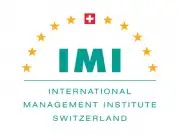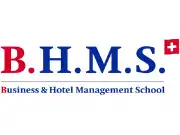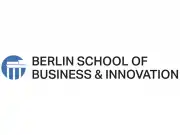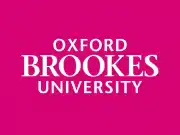Master’s programs in Tourism and hospitality
- Master’s programs in Tourism and hospitality
- Advantages of Master’s programs in Tourism and hospitality
- Disadvantages of Master’s programs in Tourism and hospitality
- Popular universities for Master’s programs in Tourism and hospitality
- Admission requirements for Master’s programs in Tourism and hospitality
- Documents for admission to Master’s programs in Tourism and hospitality
- Cost of education for Master’s programs in Tourism and hospitality
- Scholarships and grants for Master’s programs in Tourism and hospitality
- Career prospects after Master’s programs in Tourism and hospitality
- Is it worth studying Master’s programs in Tourism and hospitality?
- Frequently Asked Questions

Master of Science - International Hospitality and Events Management
International Management Institute SwitzerlandThis MSc program, offered by IMI, is designed for students who have a Bachelor's degree but no professional experience. The curriculum focuses on core strategic management skills in the hotel and events industries and provides a wide understanding of operational management, planning, and strategy…

Master of Science - International Hospitality Business Management
B.H.M.S - Business and Hotel Management School - Lucerne, SwitzerlandGraduates and those seeking to advance their careers in the hospitality industry can benefit from the M.Sc. programs by gaining a deeper understanding of the industry and more advanced skills.
Students will gain the skills and information necessary for a successful career in the hospitality,…

Master of Arts - Tourism, Hospitality and Event Management
Berlin School of Business and InnovationDegree awarded by University for the Creative Arts (UCA)
As a global institution, BSBI strives to give students new opportunities and challenges. Our mission is to help you grow in your studies and career while introducing you to German and EU business.
The MA in Tourism,…

Master of Arts - International Tourism, Hospitality and Event Management
Berlin School of Business and InnovationDegree awarded by Università Telematica Internazionale UNINETTUNO
This master's program is designed to foster management and leadership skills, particularly for the travel, hotel, and events industries.
You will gain the most current and pertinent knowledge and skills…

Master of Science - International Hospitality Management
SHMS - Swiss Hotel Management SchoolLearn more about the hotel industry while developing highly employable skills in a variety of specialty areas, such as hospitality management, digital value creation, and design management.
In this one-year course, students will:
- Study specializations offered in hospitality…

Master - Hospitality Management (Online Executive)
SHMS - Swiss Hotel Management SchoolIf you're a working professional looking to advance your career, consider this online master's degree that has been recognized by your field. You can customize your study schedule to last anything from one to two years. Access is available 24/7/365 from any location.
Graduate with a:
- EXECUTIVE…

Master - Tourism & Hospitality Management
EU Business SchoolTourism is the fastest expanding industry because of the globalization of the world. Businesses in the modern day need executives who can foresee the future, think creatively, and have an entrepreneurial spirit in order to adapt to rapid technological and customer shifts.
Students in this…

Master of Science - International Hospitality, Events and Tourism Management
Oxford Brookes UniversityWith our MSc in Hospitality, Events, and Tourism Management, you will get a basic understanding of important ideas like:
- psychology of consumer behaviour
- how to create a marketing plan
- hospitality operations
- strategic financial management
It…

Master of Science - International Hotel and Tourism Management
Oxford Brookes UniversityYour capability to think strategically across key management disciplines will be enhanced by our MSc in International Hotel and Tourism Management. Building on your prior coursework and professional experience, you might specialize in a particular field.
Our faculty members are acknowledged…

Master of Science - Applied Coaching Science
Oxford Brookes UniversityThe Oxford Brookes Applied Coaching Science (MSc) degree is a coach development program that is geared at and given for the growth of your coaching practice. The program's goal is to develop professionals with the knowledge and abilities to provide at the bleeding edge of coaching science. It was…
Master’s programs in Tourism and hospitality
Master’s programs in tourism and hospitality are specialized training aimed at preparing leaders and experts of international caliber for work in the travel industry, hotel business, resorts, and tourism companies. Unlike a bachelor’s degree, a master’s program allows students not only to acquire fundamental knowledge but also to master management skills, strategic planning, tourism marketing, service innovations, and modern technologies for managing personnel and customer services.
The importance of this field continues to grow every year. Tourism is one of the largest sectors of the global economy: according to the World Tourism Organization (UNWTO), tourism accounts for over 10% of global GDP and approximately one in every ten jobs worldwide. Therefore, qualified specialists in hospitality and tourism are in demand in many countries, from Europe and Asia to North America and the Middle East.
Advantages of Master’s programs in Tourism and hospitality
Choosing a master’s degree in this field opens a wide range of opportunities for international students.
- International recognition of the diploma. Graduates of leading universities can work in any country in the world, as education standards in tourism and hospitality are unified and valued by all international companies.
- In-depth knowledge and practical skills. Programs are designed so that students study strategic management, human resource management, hospitality marketing, and investments in the tourism sector. A key part of the training is practical experience and internships: many universities collaborate with global hotel chains, airlines, and tourism corporations, allowing students to gain experience during their studies.
- Flexibility in career paths. Graduates can choose not only the hotel business but also related industries: cruise tourism, aviation management, the event industry, resort management, government tourism organizations, and even educational projects.
- Intercultural and communication skills. Since training takes place in an international environment, international students learn to work in teams with representatives of different cultures, which is particularly valuable in the global industry.
Disadvantages of Master’s programs in Tourism and hospitality
Despite the numerous advantages, prospective students should consider potential challenges.
- High cost of education. This is especially true for Switzerland and the United Kingdom, where the annual cost can exceed 30,000 dollars or francs. For students from CIS countries, this can be a significant financial burden.
- Language requirements. Admission to a master’s program requires fluency in English, confirmed by IELTS or TOEFL certificates.
- Intensity of studies. Master’s programs in tourism and hospitality combine academic theory with a large number of practical activities, requiring high self-organization.
- Competition in the job market. Securing top positions in hotel chains and tourism corporations is not easy and requires additional skills, experience, and connections.
How to overcome these challenges?
- Financial barriers can be reduced through scholarships, grants, and university discounts. Many institutions offer international students up to 50% tuition discounts.
- Language exam preparation should begin in advance: classes with a tutor, language courses, and conversational English practice.
- Academic workload can be managed with proper planning: students often divide projects among themselves, and universities provide access to career centers and mentors.
- Competition is reduced by completing internships and building a professional portfolio during studies. Universities typically assist students in finding internships.
Popular universities for Master’s programs in Tourism and hospitality
Master’s degrees in tourism can be obtained in many countries, but several institutions stand out for their high-quality education.
- Swiss Hotel Management School (SHMS) – one of the world leaders. Programs focus on luxury hospitality, strategic management, and service innovations. Training takes place on campuses located in historic hotels, with internships at leading hotels worldwide.
- Final International University (FIU, Northern Cyprus) – a modern university emphasizing affordable education and a practice-oriented approach. Master’s programs in English include disciplines in hotel management, tourism marketing, and cross-cultural communication.
- European University of Lefke (Northern Cyprus) – a university with international recognition and a wide range of programs for international students. The master’s program in tourism combines European quality standards with moderate costs.
- University of Surrey (United Kingdom) – ranked among the top universities for Hospitality and Tourism Management, with programs focused on strategic management and innovation.
- Les Roches Global Hospitality Education (Switzerland, Spain) – a prestigious school preparing leaders for the world’s largest brands.
Admission requirements for Master’s programs in Tourism and hospitality
Admission to a master’s program requires meeting several conditions:
- Bachelor’s degree (in tourism, business, management, or related fields).
- English language proficiency: IELTS 6.0–6.5 or TOEFL iBT 80+.
- Average diploma GPA of 2.5–3.0.
- Resume and work experience in tourism (desirable but not always mandatory).
- Motivation letter explaining interest in the industry.
- Recommendation letters from professors or employers.
Documents for admission to Master’s programs in Tourism and hospitality
Students need to prepare the following documents:
- International passport.
- Completed university application form.
- Bachelor’s degree and transcript with grades.
- IELTS/TOEFL certificate.
- CV detailing work experience and skills.
- Motivation letter (1–2 pages).
- Recommendations from professors or employers.
- Financial documents (bank statement or scholarship confirmation).
Cost of education for Master’s programs in Tourism and hospitality
Tuition costs vary depending on the country and university level:
| Country / University | Tuition Cost per Year | Living Expenses |
|---|---|---|
| Switzerland (SHMS, Les Roches) | 28,000 – 35,000 CHF | 12,000 – 15,000 CHF |
| United Kingdom (University of Surrey) | 15,000 – 20,000 GBP | 10,000 – 12,000 GBP |
| Northern Cyprus (FIU) | 3,500 – 5,000 USD | 2,500 – 3,000 USD |
| European University of Lefke | 4,000 – 6,000 USD | 2,000 – 2,500 USD |
| Spain (Les Roches Marbella) | 20,000 – 25,000 EUR | 8,000 – 10,000 EUR |
Scholarships and grants for Master’s programs in Tourism and hospitality
To reduce the cost of education, international students can take advantage of various forms of support:
- University scholarships – many institutions offer up to 50% tuition discounts for high academic achievements.
- Erasmus+ grants – support for students wishing to study in Europe through exchange programs.
- Private foundations – for example, international hotel chains sponsor talented students.
- Regional programs at FIU and European University of Lefke – preferential conditions are often offered to students from CIS countries.
Career prospects after Master’s programs in Tourism and hospitality
After completing a master’s degree, students can work in:
- International hotel chains (Hilton, Marriott, Accor, Hyatt).
- Tourism agencies and corporations.
- Aviation and cruise industries.
- Government and private tourism organizations.
- Event industry and consulting firms.
- Educational institutions as lecturers and researchers.
According to statistics, the average salary for master’s graduates in Europe is 35,000–50,000 EUR per year, in Switzerland – over 60,000 CHF, and in Middle Eastern countries – from 40,000 USD.
Is it worth studying Master’s programs in Tourism and hospitality?
Yes, if you aim to build an international career and work in global companies, a master’s degree in tourism and hospitality is an excellent investment. Despite the high cost of programs in Switzerland and the UK, the diploma opens doors to prestigious companies. More affordable options, such as FIU and the European University of Lefke, provide quality education at a reasonable price.
Frequently Asked Questions
- Is it possible to enroll without work experience?
Yes, but having experience in the hospitality or tourism industry increases your chances. - Is it allowed to work during studies?
In most countries, students can work part-time up to 20 hours per week. - What is the duration of the program?
A master’s degree lasts from 1 to 2 years, depending on the country and program. - Is it easy to find a job after graduation?
Yes, graduates are in demand in hotel chains, airlines, and tourism corporations. Success depends on the student’s activity during studies and internship experience.